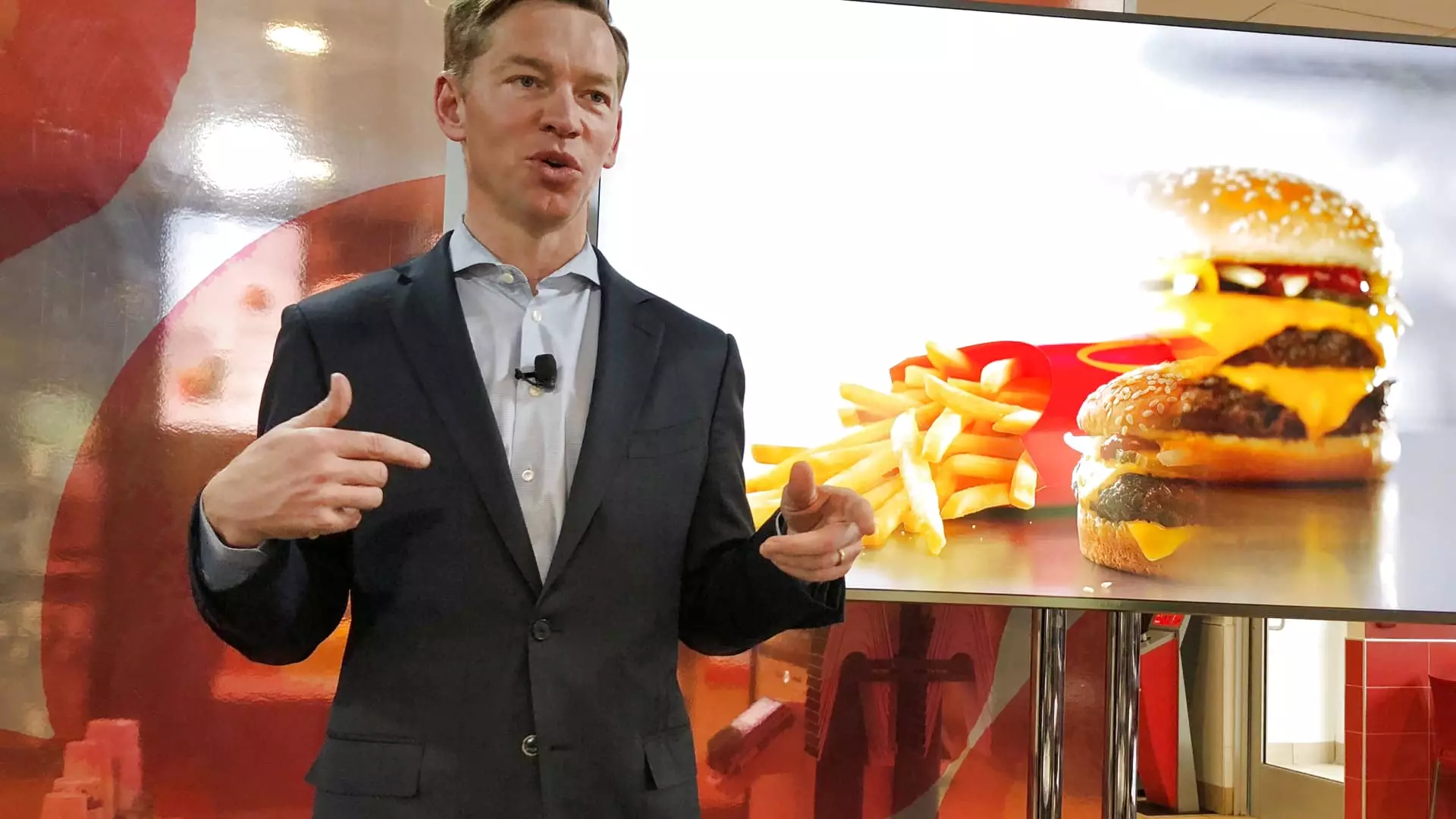In a dramatic twist following an unsettling E. coli outbreak linked to McDonald’s popular Quarter Pounder burgers, the fast-food giant’s CEO, Chris Kempczinski, reported to investors that the company believes it has put the crisis behind them. Although health authorities determined that no E. coli was found in the hamburger patties, the situation has necessitated a thorough reassessment of McDonald’s food safety protocols. With health concerns at the forefront, Kempczinski expressed confidence during a Tuesday investor call, stating that the company views the situation as “contained” and reassured stakeholders of a return to normalcy.
This optimism comes after McDonald’s made adjustments in its operations, notably reassessing the ingredients used in its flagship burger. The ongoing investigation by the Food and Drug Administration (FDA) is currently focused on slivered onions, which are suspected to be the source of the outbreak. Consequently, the company has taken drastic measures, including halting onion supplies from the implicated vendor and modifying the Quarter Pounder recipe at approximately 900 locations.
The outbreak has undoubtedly taken its toll on McDonald’s customer traffic and daily sales. Reports indicate a noticeable decline in foot traffic immediately following the outbreak news, prompting concerns regarding long-term effects on consumer behavior. Ian Borden, McDonald’s Chief Financial Officer, acknowledged the decline but asserted that they do not expect a significant negative impact on overall business performance.
The challenge McDonald’s now faces is twofold: rebuilding consumer trust and reigniting the strong sales momentum that characterized the beginning of October. As customers become increasingly discerning about food safety, McDonald’s is under pressure to adopt an open and transparent approach. Borden emphasized the necessity of restoring consumer confidence and getting back to business as usual, signifying that their priorities extend beyond mere financial performance to include customer health and safety.
Amid the turmoil, McDonald’s released its third-quarter earnings, which presented a mixed bag. U.S. same-store sales rose by a modest 0.3% compared to previous years, reversing a downturn from the second quarter. However, this growth is weaker than market expectations, leading to a slight dip in shared price during pre-market trading. While the company managed to exceed Wall Street’s revenue and earnings projections, it remains clear that international markets are struggling, contributing to a 1.5% decline in overall same-store sales.
Investors are now keenly observing McDonald’s sales figures as it navigates the repercussions of the outbreak. With previous promotional strategies—like the $5 value meal and the Chicken Big Mac—having propelled the brand’s performance, there is hope for a rebound. The foresight of McDonald’s response will ultimately determine whether the brand can recover and restore its once-solid reputation in the fast-food industry.
As with many corporate crises, the aftermath of the E. coli outbreak may venture into legal territory. Already, at least three lawsuits have emerged, filed by victims affected by the outbreak, and raising questions about accountability and liability. As McDonald’s grapples with these legal ramifications, the ability to provide clear communication and mitigate reputational damage will be crucial.
Kempczinski, during the investor call, expressed heartfelt apologies to affected customers, stating the impact of the outbreak was “wrenching” for the organization. He emphasized McDonald’s commitment to addressing the situation, demonstrating the company’s intent to take responsibility. By extending sympathies and a pledge to enhance food safety measures, McDonald’s is working to build a narrative of resilience and proactive change, seeking to reassure skeptical diners.
As McDonald’s charts its course forward, the situation offers insights into the intricate relationship between food safety, consumer trust, and corporate responsibility. The company’s commitment to transparency, alongside its strategic adjustments in response to health inquiries, will be watched closely by stakeholders and consumers alike. The path to recovery is layered, filled with both challenges and opportunities for improvement. As it strives to regain its former stature amidst growing health consciousness, McDonald’s must prioritize not just profits, but also the well-being of the communities that support it.

